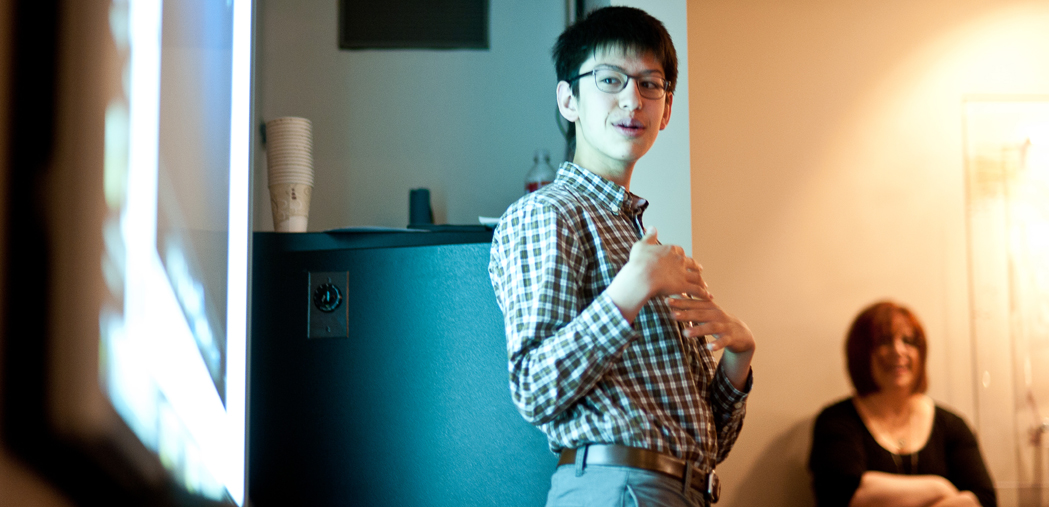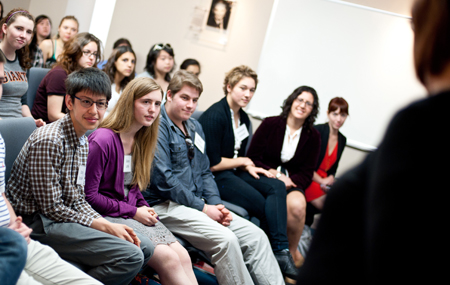IWitness Featured in JFCS Manovill Holocaust History Fellowship

 The 2011 Manovill Fellows visited USC Shoah Foundation
The 2011 Manovill Fellows visited USC Shoah FoundationWhen a select group of eight high school students learn about the Holocaust and genocide each year as part of the Manovill Holocaust History Fellowship at Jewish Family and Children’s Services’ (JFCS) Holocaust Center in San Francisco, they turn to IWitness to create one of the biggest projects of the fellowship.
The Manovill Holocaust History Fellowship brings together eight high school students from all over the Bay Area to delve deeply into the Holocaust and the history of genocide and share their knowledge throughout their communities. They participate in seminars, complete research projects using primary sources at the JFCS Holocaust Center’s Tauber Library, attend cultural and commemorative events, and educate others about genocide in schools and other settings.
But one of the highlights of the fellowship, according to JFCS Holocaust Center Director of Education Morgan Blum, is the short film each student makes in IWitness, USC Shoah Foundation’s educational website. Each student is assigned to watch an entire testimony in IWitness of a Bay Area survivor, liberator, or rescuer and then create an eight-minute film about the survivor on a relevant theme,. IWitness has been part of the Manovill Fellowship curriculum since 2011.
Using IWitness’s built-in video editor, students combine excerpts from the testimony with sources from Tauber Library, such as maps and images, to create their films. The project takes about two months to complete.
Blum said students are enthusiastic about using IWitness and pick up the technical skills very quickly, even if they’ve never made a film before.
Over the past few years, there have even been the opportunities to screen some of the films for the survivors, liberators, and rescuers featured in the films and for their families.
“The survivors cherish these short films,” Blum said. One survivor shows the film the Manovill Fellow made about her at every presentation she makes at schools.
The IWitness project teaches the fellows a range of skills, from video editing and research to troubleshooting.
“Not only does it build their knowledge of the history of the Holocaust, but it also teaches them peer review and problem-solving skills,” Blum said, since students give each other feedback and, at times, have to work their way through the process independently.
Video testimony exposes the fellows to the many ways we learn about the Holocaust, Blum said.
“It allows them to connect with primary sources in a very intimate way,” Blum said. “They delve into one person’s oral history and get to examine the complexities of it, the questions that were asked.”
The first Manovill Fellows to complete the project visited the USC Shoah Foundation office in April 2011 to screen their films and meet with staff. In addition, the Shoah Foundation leads a workshop about working with testimony in IWitness at the JFCS Holocaust Center’s annual Day of Learning in San Francisco, which draws 600 students and teachers from more than 100 schools for a day of workshops about the Holocaust and genocide.
USC Shoah Foundation recently acquired 1,400 testimonies of Holocaust survivors from the JFCS Holocaust Center’s Oral History Project. They are currently being indexed and will be incorporated into the Visual History Archive by the end of 2015.